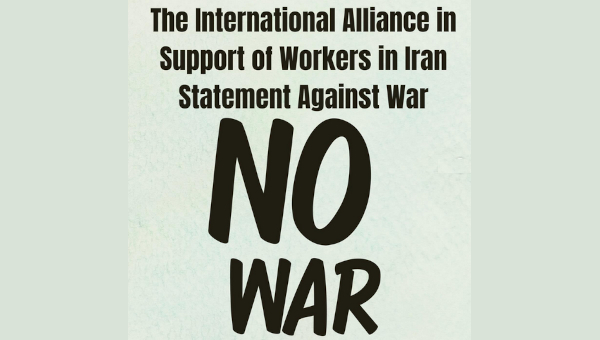Iran: end repression of independent trade unions
AI Index: MDE 13/040/2009 (30 April 2009)
Marking International Workers' Day on May Day 2009, Amnesty International calls on the Iranian authorities to end the repression of trade unionists by immediately releasing those imprisoned for their trade union work; dropping charges against others currently facing trial for similar reasons, and ending other repressive measures which marginalize trade unions and their members. The organization also warns against measures aiming at prohibiting peaceful gatherings on May Day in Tehran.
In particular, Mansour Ossanlu and Ebrahim Madadi, leading members of the Syndicate of Tehran and Suburbs Bus Company (Sherkat-e Vahed), who are serving five and three year prison sentences respectively, in connection with their trade union activities, should be released immediately and unconditionally. Both are prisoners of conscience, imprisoned solely for their peaceful advocacy of workers' rights. Mansour Ossanlu, like many other prisoners in Iran, has also been denied medical care while in custody, which has threatened his health.
Amnesty International is also urging the authorities to review urgently the cases of five leaders of the Haft Tapeh Sugar Cane Company (HTSCC) Trade Union, with a view to overturning their convictions and sentences. In April 2009, the five were sentenced to between four to six months' imprisonment for "propaganda against the system" in connection with interviews they gave on May Day 2008 to foreign journalists about working conditions at the plant, with an additional six to eight months' imprisonment suspended for five years. They are, however, not currently detained, pending appeals against their convictions and sentences.
Amnesty International also urges the Iranian authorities to allow peaceful gatherings by workers on May Day. Alireza Saghafy, a member of the Centre for Workers' Rights in Iran, was detained for five hours on 28 April 2009, during which he was reportedly told to try to prevent a May Day rally planned for Tehran. The right to freedom of peaceful assembly is guaranteed under the International Covenant of Civil and Political Rights (ICCPR), to which Iran is a State Party.
Read the complete statement here ...
AI Index: MDE 13/040/2009 (30 April 2009)
Marking International Workers' Day on May Day 2009, Amnesty International calls on the Iranian authorities to end the repression of trade unionists by immediately releasing those imprisoned for their trade union work; dropping charges against others currently facing trial for similar reasons, and ending other repressive measures which marginalize trade unions and their members. The organization also warns against measures aiming at prohibiting peaceful gatherings on May Day in Tehran.
In particular, Mansour Ossanlu and Ebrahim Madadi, leading members of the Syndicate of Tehran and Suburbs Bus Company (Sherkat-e Vahed), who are serving five and three year prison sentences respectively, in connection with their trade union activities, should be released immediately and unconditionally. Both are prisoners of conscience, imprisoned solely for their peaceful advocacy of workers' rights. Mansour Ossanlu, like many other prisoners in Iran, has also been denied medical care while in custody, which has threatened his health.
Amnesty International is also urging the authorities to review urgently the cases of five leaders of the Haft Tapeh Sugar Cane Company (HTSCC) Trade Union, with a view to overturning their convictions and sentences. In April 2009, the five were sentenced to between four to six months' imprisonment for "propaganda against the system" in connection with interviews they gave on May Day 2008 to foreign journalists about working conditions at the plant, with an additional six to eight months' imprisonment suspended for five years. They are, however, not currently detained, pending appeals against their convictions and sentences.
Amnesty International also urges the Iranian authorities to allow peaceful gatherings by workers on May Day. Alireza Saghafy, a member of the Centre for Workers' Rights in Iran, was detained for five hours on 28 April 2009, during which he was reportedly told to try to prevent a May Day rally planned for Tehran. The right to freedom of peaceful assembly is guaranteed under the International Covenant of Civil and Political Rights (ICCPR), to which Iran is a State Party.
Read the complete statement here ...





